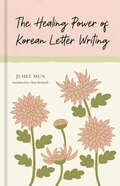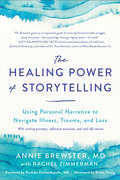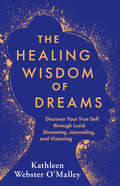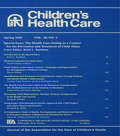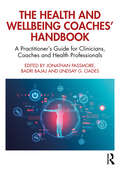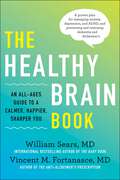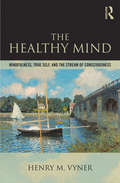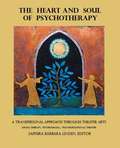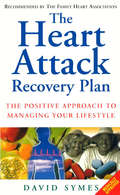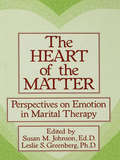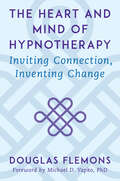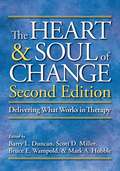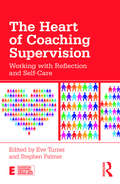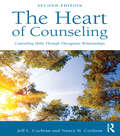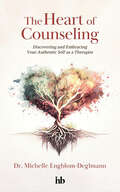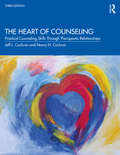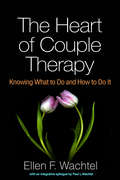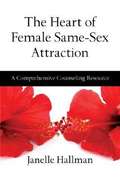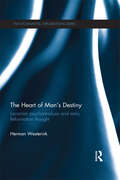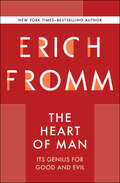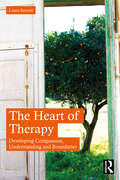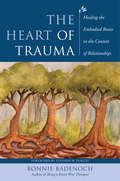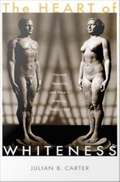- Table View
- List View
The Healing Power of Korean Letter Writing
by Juhee MunA charming ode to the lost art of connecting through the handwritten letter, from the owner of the beloved Seoul stationery shop GeulwollJuhee Mun once doubted whether handwritten letters had a place in our ultra-fast-paced world, but the runaway success of her Seoul stationery shop Geulwoll changed her mind. Established in 2019, the shop quickly became known as a tranquil place where people can write and send letters, buy gorgeous pens and letter paper, and sign up for a distinctive pen pal service: Customers can pick up a letter written by an anonymous pen pal—but only if they write one in return. Every day, Mun witnessed customers enjoying the rare pleasure of sitting down and putting pen to paper, and in The Healing Power of Korean Letter Writing, she shares the joy with others who crave the unique type of connection and careful consideration that comes from handwritten letters.Through eighteen short chapters, from practical subjects like The Best Time to Write a Letter and Choosing Letter Paper and Envelopes to more sentimental ones like What Only Letters Can Do, Mun gently reveals the healing, nostalgic power of the written note. Personal stories and wisdom from famous letter-writers provide the encouragement for readers to craft touching, humorous, loving, and healing notes for everyone in their life—maybe even themselves, or a stranger. The Healing Power of Korean Letter Writing is the ultimate love letter to an age-old practice that fosters connection to yourself and others, and a potent antidote to the fast-paced, online world of today.
The Healing Power of Storytelling: Using Personal Narrative to Navigate Illness, Trauma, and Loss
by Annie BrewsterReframe your story--and reclaim your life--through the transformative practice of writing and storytelling.When Harvard-trained physician Dr. Annie Brewster was diagnosed with multiple sclerosis in 2001, she realized firsthand that the medical system to which she&’d devoted her entire career was failing patients. The experience was dehumanizing. Her doctors weren&’t listening. And the confusion, fear, and shame she felt around her diagnosis was preventing her from truly healing, claiming her story, and living her fullest, richest life.The fact is, doctors can give you a life-changing diagnosis, but they&’re not equipped to help you deal with the inner fallout: the confusion, anxiety, trauma, and dread that comes after &“I have some bad news.&” Here, Dr. Brewster shows how writing your own unique healing story can help you process what comes next--to come to terms, create new ways to thrive, and even reclaim your personal power amid fear, change, and uncertainty. Dr. Brewster and journalist Rachel Zimmerman each share their own personal stories, acting as expert guides as you move forward on your healing journey. With exercises, reflections, writing prompts, and stories from other real patients, Dr. Brewster and Zimmerman show how you can: • Process the difficult emotions that come with life-changing diagnosis • Move beyond being the hero of your own story to become the author of your own story • Craft your narrative and share it in whatever medium speaks to you: music, audio, art, or writing • Integrate a traumatic health event into a new and evolving identity • Use applied storytelling techniques to strengthen connections between you and your loved ones (and even your care providers) • Cultivate resilience to move forward amid uncertainty and fear
The Healing Power of Writing: A Therapist's Guide to Using Journaling With Clients
by Susan BorkinThe healing benefits of writing can support traditional therapy. While much has been written about the physical and emotional benefits of writing, little has been written specifically for mental health professionals detailing how to use therapeutic journaling with their clients. Therapeutic journaling--any type of writing or related expressive process used for the purpose of psychological healing or growth--can be an extremely helpful adjunctive therapy. When integrated into an overall treatment plan, regardless of the therapist's clinical orientation, journaling can become a dynamic tool for personal growth and healing. The first part of this book, "Journaling and the Clinical Process," gives an overview of therapeutic journaling and the many potential benefits from its use. It provides concrete and specific steps for introducing journaling to psychotherapy clients and answers questions about structure and logistics. For example, engaging your client in writing a biographical statement will not only help focus the treatment plan but also provide a vast amount of background information. This section also introduces two very beneficial mnemonic devices to help clients focus and organize journaling between sessions. The next section, "Presenting Problems and Journaling Solutions," addresses nine different diagnoses and explains specifically how therapeutic journaling can be integrated into the treatment plan of these diagnoses. Key diagnoses are covered: adjustment disorders, anxiety, depression, grief, low self-esteem, couple and relationship issues, addictions, disordered eating, and post-traumatic stress disorder. The final part of the book, "Journaling Roadblocks and Building Blocks," addresses potentially difficult, sticky, or challenging situations regarding journaling, such as possible resistance to therapeutic journaling, privacy issues, safe boundaries, and protection of client material. Importantly, it also reviews those circumstances in which it is best not to use therapeutic journaling or when journaling is contraindicated. The author offers a program designed for therapists for creating their own therapeutic journaling practice. The Healing Power of Writing is filled with case studies, step-by-step exercises, and clear and practical guidelines for mental health professionals who want to incorporate journaling into their clients' treatment.
The Healing Wisdom of Dreams: Discover Your True Self through Lucid Dreaming, Journaling, and Visioning
by Kathleen Webster O'MalleyA guide to trusting in the wisdom of our nightly visions and describing how engaging with our dream world can give us a sense of direction, help us to heal current and past hurts, including pre-birth trauma.We can analyze and interpret our dreams, but we can do so much more: when we understand and engage with our dreams, we are able to tap into a special, deeper kind of healing. The process of healing is not about putting the same pieces back together; rather, it is about reclaiming what is already within us that could never be broken, the essence of who we are as individuals and as interconnected parts of a greater whole. In THE HEALING WISDOM OF DREAMS, health and wellness practitioner Kathleen Webster O'Malley gently guides us through the process of using our dreams to heal unwanted patterns and live more authentically.She provides specific tools for enhancing dream recall, including dream journaling, and brings in the practices of dream incubation--how to ask our dream a question and receive and interpret an answer--lucid dreaming, and Tibetan dream yoga practices. Nightmares are inevitable when we start to dive deeper into our vulnerabilities and traumas, and O'Malley discusses how to re-vision them as urgent messages that serve to deliver profound realizations. She explores the more mystical side of dreaming: visions from ancestors and spirit guides, animal guides, and archetypes that appear in our dreams. Finally, she encourages us to grant ourselves permission to be playful in our dreams, to envision ourselves as archeologists unearthing our hidden gifts.
The Health Care Setting As A Context for the Prevention and Treatment of Child Abuse: A Special Issue of children's Health Care
by Keith L. KaufmanThis special issue was designed to explore the role of health care professionals in the assessment, treatment, and prevention of child maltreatment. The initial five articles were solicited to enhance our understanding of various forms of child maltreatment as well as approaches designed to effectively respond to this difficult problem. The final manuscripts in this issue represent a theoretical and empirical perspective on child maltreatment. Medical settings represent a fertile arena for prevention as well as intervention initiatives. Future research should further support clinical strategies via program evaluation and outcome studies, and be aimed at enhancing our knowledge of the field and developing more comprehensive models to guide our efforts. It is hoped that this issue will stimulate research in this area and provide additional support for clinical interventions in the field.
The Health and Wellbeing Coaches' Handbook: A Practitioner's Guide for Clinicians, Coaches and Health Professionals (The Coaches' Handbook Series)
by Jonathan Passmore Lindsay G. Oades Badri BajajThis comprehensive volume offers ideas, examples, and guidance to help coaches develop skills in their coaching practice, specifically in the areas of health and wellbeing as they are experienced by their clients.The book also explores the growing importance of wellbeing coaching within the wider coaching world and the health sector. Starting with definitions of wellbeing and health coaching, then delving into health and wellbeing issues faced by clients, and tools for coaches along with their practical applications, this book includes theory, case studies, and reflection exercises so that readers can use it in a personal and practical way.The Health and Wellbeing Coaches’ Handbook is an essential resource for coach practitioners, supervisors, and consultants working with clients, as well as for students in post-graduate programmes, including coaching, health and allied health professional programmes, and human resource professionals focusing on employee wellness.
The Healthy Brain Book: An All-Ages Guide to a Calmer, Happier, Sharper You: A proven plan for managing anxiety, depression, and ADHD, and preventing and reversing dementia and Alzheimer's
by William Sears Vincent M. FortanasceInternationally renowned family doctor William Sears and noted neurologist Vincent M. Fortanasce present an accessible, all-ages guide to optimum brain health, from treating depression, anxiety, and ADHD to preventing Alzheimer's and dementia, with or without medication The brain is a complex organ, responsible for our thoughts, our feelings, our hopes and dreams. It's also vulnerable to a host of ailments that negatively impact quality of life, from disorders such as depression, anxiety, and ADHD that can strike at any time to illnesses of aging like Alzheimer's and dementia. The good news is, this diverse set of mental and emotional challenges all stem from the same cause: imbalance in the brain. And getting your brain back in balance—without medication, or in partnership with it—is easier than you think. Whether you're experiencing "normal" mental and emotional burnout or wrestling with diagnosed illness, The Healthy Brain Book can help you thrive. It explains: How what we think can change how well we think The role of inflammation in the brain, and how food and activity can reverse it What drugs enhance and suppress the brain's ability to heal itself Actionable advice to improve your memory, promote learning, and prevent common brain ailments How to personalize the book's tools for your unique brain For more than 20 years, The Baby Book author William Sears' advice has been trusted by millions across the country, and around the world. Now, he and The Anti-Alzheimer's Prescription author Vincent M. Fortanasce have put together the essential guide to a clearer, calmer, and happier brain. Laced with relatable personal stories from family members and patients as well as detailed illustrations, The Healthy Brain Book weds Fortanasce's deep neurological and psychiatric expertise with Sears' sympathetic bedside manner and reader-friendly writing. Let The Healthy Brain Book help you, safely and effectively, "think-change" your brain for a happier and healthier life.
The Healthy Mind: Mindfulness, True Self, and the Stream of Consciousness
by Henry VynerIn The Healthy Mind, Dr. Henry M. Vyner presents the findings of twenty-seven years of research spent interviewing Tibetan lamas about their experiences of the mind. The interviews have generated a science of stream of consciousness that demonstrates that the healthy human mind is the egoless mind, given the paradox that the egoless mind has an ego. Vyner presents this science and also shows his readers how to cultivate a healthy mind. The Healthy Mind features extensive interview excerpts, theoretical maps of the egoless and egocentric mind, discussions of the history of science, and thought experiments that unpack the implications of his findings. This is a useful book for all those interested in the dialogue between Buddhism and psychology and in understanding the nature of the healthy mind.
The Heart And Soul Of Psychotherapy: A Transpersonal Approach Through Theater Arts
by Saphira Barbara LindenThis book offers an innovative approach to healing and transformation through application of the 12 transpersonal drama therapy principles. It demonstrates a host of therapeutic techniques integrating the arts with meditation as clients heal traumatic memories and shift their identities from a conditioned, limited sense of self to the essential Self, or soul Self. <p><p> Thirty-nine of Ms. Linden’s students and colleagues demonstrate how they have applied the 12 principles to a wide array of populations in need. Collectively, they have reached all ages, many diverse backgrounds, and a range of life circumstances and health conditions -- in private practice, community-based organizations, institutions, events, disaster relief and international venues. Throughout the 30 years of the formal life of the dramatherapy profession, Saphira and her colleagues have been gradually building and developing an integrated, profound, joyous, and generative practice through Omega Theater and ’s Drama Therapy Training Institute, and this book is a culminating demonstration of this amazing work and these amazing people. <p> Their work is built on strong foundations, represented by the wonderful forwards by Zerka Moreno, Ellen Burstyn, and Pir Zia Inayat Khan. They are the roots... Saphira is the trunk... and the chapters are the bloom, of the transpersonal approach to psychotherapy integrating the arts. It has been a privilege for me to witness this process unfold and now to benefit from the remarkable work described in this book.
The Heart Attack Recovery Plan: The Positive Approach to Managing Your Lifestyle
by David SymesThe after-effects of a heart attack are wide ranging - and some of them unexpected. Physical health can never be taken for granted again. A balanced diet becomes a must. But the psychological effects, too, should not to be overlooked. Previously active and self-confident people can find the fear of a repeat attack will prevent them from enjoying sport or active hobbies. Partners may find that they are worried about having sex. Obsessive concern about the condition may dominate conversation. Coming to terms with such a dramatic experience will go through a number of common phases. This practical, accessible and authoritative guide explains not only what causes a heart attack, but also how to come to terms with recovery. It explains how to get the best from your GP, how to live safely - but fully. Complete with general nutritional guidelines this realistic guide is invaluable reading to all those living through a heart attack in the family. It will help you to keep your risk to a minimum and get your health back in good shape.
The Heart Of The Matter: Perspectives On Emotion In Marital Therapy
by Susan M. Johnson Leslie S. GreenbergFirst published in 1995. Routledge is an imprint of Taylor & Francis, an informa company.
The Heart and Mind of Hypnotherapy: Inviting Connection, Inventing Change
by Douglas FlemonsExplains and demonstrates how to create and utilize mind-body connections for unknotting vexing problems. In the popular imagination, hypnosis is misconstrued as something done to people, as if the hypnotist hypnotizes them. And hypnotherapy is similarly misconceived as something done to clients’ problems, as if the therapist could unilaterally counter or cure them. In a refreshing departure from conception-as-usual, Douglas Flemons offers another view, articulating relational ideas about how minds and bodies communicate and learn. In his characteristically casual and concise way, Flemons explains and illustrates how hypnosis, like meditation, is invited, not induced, and how hypnotherapy entails the altering and unraveling of knotted strands of problematic experience, not the controlling and abolishing of labeled afflictions. The therapist gets in sync with clients so they can, together, extemporaneously facilitate changes to undesired thoughts, urges, emotions, sensations, or behaviors. This book takes you to the heart of hypnotherapy, to the respectful, playful practice of utilizing clients’ flow experience to collaboratively discover and create opportunities for embodied learning and therapeutic change.
The Heart and Soul of Change: Delivering What Works in Therapy
by Bruce E. Wampold Barry L. Duncan Scott D. Miller Mark A. HubbleUpdating the classic first edition of The Heart and Soul of Change, editors Duncan, Miller, Wampold, and Hubble, have created a new and enriched volume that presents the most recent research on what works in therapeutic practice, a thorough analysis of this research, and practical guidance on how a therapist can truly 'deliver what works in therapy'. This volume examines the common factors underlying effective psychotherapy and brings the psychotherapist and the client-therapist relationship back into focus as key determinants of psychotherapy outcome. The second edition of The Heart and Soul of Change also demonstrates the power of systematic client feedback to improve effectiveness and efficiency and legitimize psychotherapy services to third party payers. In this way, psychotherapy is implemented one person at a time, based on that unique individual's perceptions of the progress and fit of the therapy and therapist. Readers familiar with the first edition will encounter the same pragmatic focus but with a larger breadth of coverage - this edition adds chapters on both youth psychotherapy and substance abuse treatment.
The Heart of Being Helpful: Empathy and the Creation of a Healing Presence
by Peter R. BregginBased on more than 30 years of clinical experience as a psychiatrist and a therapist, Dr. Breggin illustrates the importance of developing a therapeutic bond - or healing presence - between helping professionals and their clients. The author provides useful vignettes, case studies, and personal insights to help both beginning and experienced therapists develop more empathy in therapeutic relationships.
The Heart of Coaching Supervision: Working with Reflection and Self-Care (Essential Coaching Skills and Knowledge)
by Stephen Palmer Eve TurnerThe Heart of Coaching Supervision takes us on a journey that starts with understanding who we are, and why we do what we do the way we do it, so that we can help those we work with understand themselves and their practice. The journey includes our background and personal and professional influences and considers the need for self-resourcing to resource others. It examines our being alongside our doing, to ensure that we can provide the best possible service to all those we work with. The book’s highly experienced contributors provide a unique perspective on supervision’s benefits. The chapters cover themes that support self-discovery and resourcing including the three Ps of supervision and coaching, diversity and inclusion, resourcing, working with intense emotions and the self as instrument. Nancy Kline’s Thinking Environment© is explored in a supervision context alongside creative forms of reflective and expressive writing and resourcing through a peer supervision chain. The Heart of Coaching Supervision also includes ten engaging, international case studies, considering the role of supervision in depth. A key contribution to the field, the book is essential reading for all coaches and mentors, coaching supervisors and psychologists, managers in a coaching role and anyone in a helping profession or leadership position wanting to better understand the wide benefits of supervision.
The Heart of Counseling
by Jeff L. Cochran Nancy H. CochranMore than any other text on the market, The Heart of Counseling is effective in helping students to understand the importance of therapeutic relationships and to develop the qualities that make the therapeutic relationships they build with clients the foundation of healing. In these pages, students come to see how all skills arise from and are directly related to the counselor's development and to building therapeutic relationships. Student learning ranges from therapeutic listening and empathy to structuring sessions, from explaining counseling to clients and caregivers to providing wrap-around services, and ultimately to experiencing therapeutic relationships as the foundation of professional and personal growth. The Heart of Counseling includes: extensive case studies and discussions applying skills in school and agency settings specific guidance on how to translate the abstract concepts of therapeutic relationships into concrete skill sets exploration of counseling theories and tasks within and extending from core counseling skills videos that bring each chapter to life test banks, instructor's manuals, syllabi, and guidance for learning-outcomes assessments for professors
The Heart of Counseling: Discovering and Embracing Your Authentic Self as a Therapist
by Michelle Engblom-DeglmannThe Heart of Counseling is a poignant and transformative guide for counselors-in-training and seasoned professionals alike. Drawing from personal experiences and professional insights, Dr. Michelle unpacks the pervasive doubts and insecurities that often accompany the journey to becoming a counselor and gives hope to those wondering, "Do I belong here?" Through heartfelt anecdotes and practical exercises, readers are guided to confront their own inner critics and embrace their authentic selves. Dr. Michelle provides a roadmap for navigating the complexities of self-discovery and professional growth, emphasizing the importance of cultivating self-compassion and resilience in the counseling profession.
The Heart of Counseling: Practical Counseling Skills Through Therapeutic Relationships, 3rd ed
by Jeff L. Cochran Nancy H. CochranNow in its third edition, The Heart of Counseling is a key resource helping students to understand the importance of therapeutic relationships and to develop the qualities that make the therapeutic relationships they build with clients the foundation of healing. In these pages, students will learn how all skills arise from and are directly related to the counselor’s development and how they build therapeutic relationships. Student learning ranges from therapeutic listening and empathy to structuring sessions, from explaining counseling to clients and caregivers to providing wrap-around services, and ultimately to experiencing therapeutic relationships as the foundation of professional and personal growth. Enhancing development with extensive online student and instructor materials, this new edition includes: extensive case studies and discussions applying skills in school and agency settings specific guidance on how to translate the abstract concepts of therapeutic relationships into concrete skill sets exploration of counseling theories and tasks within and extending from core counseling skills session videos that bring each chapter to life test banks, an instructor’s guide, slides and lesson notes, syllabus, and video sessions index
The Heart of Couple Therapy: Knowing What to Do and How to Do It
by Paul L. Wachtel Ellen F. WachtelGrounded in a deep understanding of what makes intimate relationships succeed, this book provides concrete guidelines for addressing the complexities of real-world clinical practice with couples. Leading couple therapist Ellen Wachtel describes the principles of therapeutic intervention that motivate couples to alter entrenched patterns, build on strengths, and navigate the "legacy" issues that each person brings to the relationship. She illuminates the often unrecognized choices that therapists face throughout the session and deftly explicates their implications. The epilogue by Paul Wachtel situates the author's pragmatic approach in the broader context of contemporary psychotherapy theory and research.
The Heart of Female Same-Sex Attraction: A Comprehensive Counseling Resource
by Janelle HallmanThe fruit of years of training, research and counseling experience, Janelle Hallman has drawn together a comprehensive resource for those who are interested in understanding and counseling women in conflict with same sex attraction. In this ground-breaking work, Hallman sets forth the unique dimensions of struggle that women experience through the presentation of research, interviews and clinical experience. This is an indispensable guide for understanding and a manual for counseling adult women seeking to "mature in giving and receiving love in all of [their] relationships, and no longer be restricted by destructive relational patterns. "From the AuthorWhy did you decide to write The Heart of Female Same-Sex Attraction? Janelle Hallman: Because I found myself deeply involved in the lives of many Christian friends who had same-sex attraction, during the late eighties and early nineties I devoured just about every book out there on homosexuality and gender. However, almost everything I could find was for and about men. I could see that much of the material didn't apply to women. Neither was there a clinical book that was understandable for the average counselor who hadn't been trained in psychoanalytic literature. We (my friends and I) wanted to gain a deeper psychological and theological understanding related to people_s diverse experience of sexual attractions and sexual and gender identities. I knew that when I started my counseling practice in the mid-nineties, which was primarily focused on women with same-sex attraction, I would basically have to "learn as I went," or in other words, invite my clients to teach me. There simply was no published framework from which to practice. Even back then I thought that it might be a possibility that I would be the one to write a book. I knew I loved research and certainly teaching and was therefore able to condense complicated material and organize it in a way that people could understand. But I set this thought aside so that I could focus on simply learning how to counsel women with same-sex attraction. After contacting all of the other female therapists and a few male therapists specializing in this field, it was determined that no one else wanted to undertake the ultimate task of developing a manuscript, but many said they would support my efforts. So in 2004, I began the process by interviewing over fifty sexual minority women, 10 or so mothers of lesbian daughters, and several somewhat seasoned professionals who also regularly worked with faith-based sexual minority individuals. I then started mapping out an outline for the book. The Heart of Female Same-Sex Attraction is especially important not only because nothing else exists for clinicians or for pastoral counselors in helping Christian women with same-sex attraction, but also because these women struggle with trust. Many have been wounded and retraumatized by insensitive or ill-informed counselors and pastors. I have a great passion to protect these women by educating their helpers. Hopefully, the misunderstandings and presumptions on the part of helpers and caretakers will begin to be eliminated due to this publication.
The Heart of Man's Destiny: Lacanian Psychoanalysis and Early Reformation Thought (Psychoanalytic Explorations)
by Herman WesterinkCan Luther's writings inform us on the fundamental questions of Freudian psychoanalysis? Does an intellectual filiation between early Reformation thought and psychoanalysis exist? Does Lacanian psychoanalysis offer an instrument for analysing theological writings? In The Heart of Man's Destiny, Herman Westerink offers a new reading of Lacan's seventh seminar, The Ethics of Psychoanalysis. Working from an innovative perspective, this book explores the close relationship between Freudian psychoanalysis and the ideas of the early Reformation. Lacan claimed that to be unaware of the connection between Freud and early Reformation constituted a fundamental misunderstanding of the kind of problems psychoanalysis addresses. Westerink carefully explores these problems and shows that Lacanian psychoanalysis, with its emphasis on desire and law, transgression, and symbolization, draws on fundamental ideas first formulated in the writings of Luther and Calvin. By relating psychoanalysis to early Reformation thought, Westerink not only shows Lacan's writings in a completely new light, but also makes possible an innovative reading of early modern theology itself. The Heart of Man's Destiny breaks new ground by providing both a controversial as well as a fresh perspective on both Luther and Calvin, and on Freudo-Lacanian psychoanalysis. This valuable contribution to the complex character of psychoanalysis will be of interest to analysts and psychotherapists, as well academics and postgraduates with an interest in theology, philosophy and ethics.
The Heart of Man: Its Genius for Good and Evil
by Erich FrommThe acclaimed social psychologist and New York Times–bestselling author of The Art of Loving discusses the nature of evil and humanity&’s capacity for it. Originally published in 1964, The Heart of Man was influenced by turbulent times. Average Americans were suffering from different forms of evil, including a rise in juvenile delinquency. On a grander scale, the threat of nuclear war loomed over the nation, and President John F. Kennedy had been assassinated. What could drive humanity to do things such as these? In The Heart of Man, renowned humanist philosopher and psychoanalyst Erich Fromm investigates man&’s capacity to destroy, his narcissism, and his incestuous fixation. He expands upon ideas he presented in Escape from Freedom, Man for Himself, and The Art of Loving, and examines the essence of evil, as well as the choice between good and evil. He also explores man&’s ability to destroy and further considers freedom, aggression, destructiveness, and violence. &“The Heart of Man questions human nature itself, from the forms of violence that plague it to individual and social narcissism to how the positive value of &“love of life&” can potentially outweigh the destructive &“syndrome of decay&” caused by the love of death and other harmful tendencies of thought.&” —Midwest Book Review
The Heart of Therapy: Developing Compassion, Understanding and Boundaries
by Laura BarnettThis thoughtful and heartfelt book develops two main themes: the healing power of a compassionate understanding towards ourselves and others, and the ways boundaries are set within and around various areas of our lives. It examines how we live these boundaries, how they impact us, and what it takes to live these with deeper satisfaction. This book also addresses: shame and rage; the impact of trauma; the power of parental messages, spoken and unspoken; and transgenerational burdens. A theoretical chapter summarizes the author’s integrative, phenomenological approach: it brings the insights of a body-focused trauma therapy and a systemic lens to an overarching Existential perspective. Numerous vignettes, case studies and client-therapist dialogues illustrate reflections on life, philosophy, therapeutic modalities and practice. This book will be a thought-provoking read for trainee and practising counsellors and psychotherapists, or anyone looking for self-reflection on their own practices, life, and ultimately, what it means to be human.
The Heart of Trauma: Healing The Embodied Brain In The Context Of Relationships (Norton Series on Interpersonal Neurobiology #0)
by Bonnie Badenoch Stephen W. PorgesHow each of us can become a therapeutic presence in the world. Images and sounds of war, natural disasters, and human-made devastation explicitly surround us and implicitly leave their imprint in our muscles, our belly and heart, our nervous systems, and the brains in our skulls. We each experience more digital data than we are capable of processing in a day, and this is leading to a loss of empathy and human contact. This loss of leisurely, sustained, face-to-face connection is making true presence a rare experience for many of us, and is neurally ingraining fast pace and split attention as the norm. Yet despite all of this, the ability to offer the safe sanctuary of presence is central to effective clinical treatment of trauma and indeed to all of therapeutic practice. It is our challenge to remain present within our culture, Badenoch argues, no matter how difficult this might be. She makes the case that we are built to seek out, enter, and sustain warm relationships, all this connection will allow us to support the emergence of a humane world. In this book, Bonnie Badenoch, a gifted translator of neuroscientific concepts into human terms, offers readers brain- and body-based insights into how we can form deep relational encounters with our clients and our selves and how relational neuroscience can teach us about the astonishing ways we are interwoven with one another. How we walk about in our daily lives will touch everyone, often below the level of conscious awareness. The first part of The Heart of Trauma provides readers with an extended understanding of the ways in which our physical bodies are implicated in our conscious and non-conscious experience. Badenoch then delves even deeper into the clinical implications of moving through the world. She presents a strong, scientifically grounded case for doing the work of opening to hemispheric balance and relational deepening.
The Heart of Whiteness: Normal Sexuality and Race in America, 1880-1940
by Julian B. CarterIn this groundbreaking study, Julian Carter demonstrates that between 1880 and 1940, cultural discourses of whiteness and heterosexuality fused to form a new concept of the "normal" American. Gilded Age elites defined white civilization as the triumphant achievement of exceptional people hewing to a relational ethic of strict self-discipline for the common good. During the early twentieth century, that racial and relational ideal was reconceived in more inclusive terms as "normality," something toward which everyone should strive. The appearance of inclusiveness helped make "normality" appear consistent with the self-image of a racially diverse republic; nonetheless, "normality" was gauged largely in terms of adherence to erotic and emotional conventions that gained cultural significance through their association with arguments for the legitimacy of white political and social dominance. At the same time, the affectionate, reproductive heterosexuality of "normal" married couples became increasingly central to legitimate membership in the nation. Carter builds her intricate argument from detailed readings of an array of popular texts, focusing on how sex education for children and marital advice for adults provided significant venues for the dissemination of the new ideal of normality. She concludes that because its overt concerns were love, marriage, and babies, normality discourse facilitated white evasiveness about racial inequality. The ostensible focus of "normality" on matters of sexuality provided a superficially race-neutral conceptual structure that whites could and did use to evade engagement with the unequal relations of power that continue to shape American life today.
